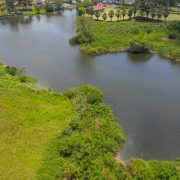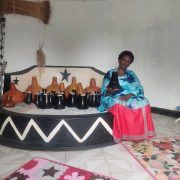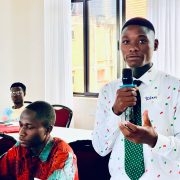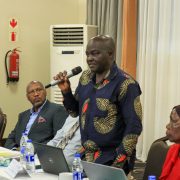Will African youth protect their world heritage amidst climate change?
Writer. Aliguma Ahabyona Akiiki, Programme/Communication Coordinator, The Cross-Cultural Foundation of Uganda (CCFU)
Youth and Africa’s World Heritage
Young people are the future of protecting and preserving heritage all around the world. According to the World Economic Forum, more than 60% of Africa’s population is under the age of 25, with projections being that by 2030, young Africans are expected to make up 42 percent of the world’s youth. Therefore, young people have a significant stake in our continent’s future.
Africa is renowned worldwide for its beautiful and diverse landscapes and wildlife, with protected and conserved areas being an integral part of its natural heritage. In 2023, at the sitting of UNESCO’s World Heritage Committee in Riyadh, Saudi Arabia, 5 new sites from Africa were inscribed and continent celebrated having 100 sites on the World Heritage List. With this achievement, are African youth well prepared to take on a protective role to ensure the survival of this heritage in times of unprecedented challenges like climate change?
Climate change – unprecedented effects on Africa’s World Heritage
Climate change is causing damage to infrastructure, ecosystems, and social systems, including cultural and natural heritage sites. In most cultural and natural heritage sites are situated in different climatic conditions. Climate change threatens the very existence of heritage sites, particularly terrestrial sites in vulnerable locations such as coastal areas exposed to increased erosion and sea level rise. Changing climate may also cause the displacement of the values that make up Outstanding Universal Value, such as the agricultural and cultivated species in cultural landscapes and biological communities and threatened species in terrestrial and marine parks.
From the deglaciation of Rwenzori Mountains in Uganda, to the drying of the Victoria falls in Zimbabwe, and to the Coastal erosion and sea-level rise that have damaged African World Heritage Sites like the Roman city of Sabratha on the Libyan coast and the colonial forts along the coastline of Ghana climate change is having a dire effect on Africa’s World Heritage.
According to the UNESCO World Heritage Centre Policy Document on Climate Action for World Heritage (2023), ‘World Heritage properties are affected by the impacts of climate change at present and in the future. Their continued preservation requires understanding these impacts to their Outstanding Universal Value and responding to them effectively.’
The 7th Africa World Heritage Youth Forum: an opportunity for Africa’s youth to shape the future of Africa’s World Heritage
In January 2024, the African World Heritage Fund in partnership with the International Centre for the Study of the Preservation and Restoration of Cultural Property (ICCROM) and the UAE Ministry of Culture & Youth organised the 7th African World Heritage Youth Forum under the theme: “Engaging African Youth in Climate Action for World Heritage Conservation”. The first segment of the Forum that was held online from 15th to 19th January 2024 brought together African young professionals to share their perspectives, experiences, and solutions for addressing the challenges posed by climate change and to learn from various heritage experts on climate change. The online session was officially opened by Espéra Donouvossi, the project lead of ‘Youth.Heritage.Africa’ project of ICCROM.
While presenting at the Forum, Prof. Munyaradzi Manyanga from the Great Zimbabwe University emphasized that ‘our cultural heritage is not renewable, we therefore have to take action to save it’. In his closing remarks at the online Forum, Dr. Albino Jopela, the Head of Programmes at the Africa World Heritage Fund reiterated the youth’s potential in changing the discourse regarding heritage promotion and taking leadership roles to mitigate the effects of climate change on Africa’s World Heritage.
Youth participants generated various ideas including training Africa youth experts to take on World Heritage inscription roles learning from the imbalanced representation of Africa heritae on the World Heritage List, recommended regular sessions (at least) for youth heritage professionals from various countries to promote learning and networking, utilising indigenous knowledge systems to tackle climate change on Africa World Heritage sites, among others. Some of these ideas were presented inform of individual projects on the last day of the session.
The Forum will also have an in-person workshop that will be held in Zimbabwe in March 2024.
честные казино с быстрыми выплатами
бездепозитные бонусы казино
играть в лучшем казино на деньги
база казино с бездепозитным бонусом
онлайн казино России
casino oyunu
By empowering the youth to play a leading role in conservation efforts and fostering cross-cultural dialogue and collaboration, the Forum will help to build a strong network of young leaders who are committed to Climate Action and conservation of World Heritage properties for the benefit of present and future generations.
The writer was a participant at the 7th Africa World Heritage Youth online Forum.







